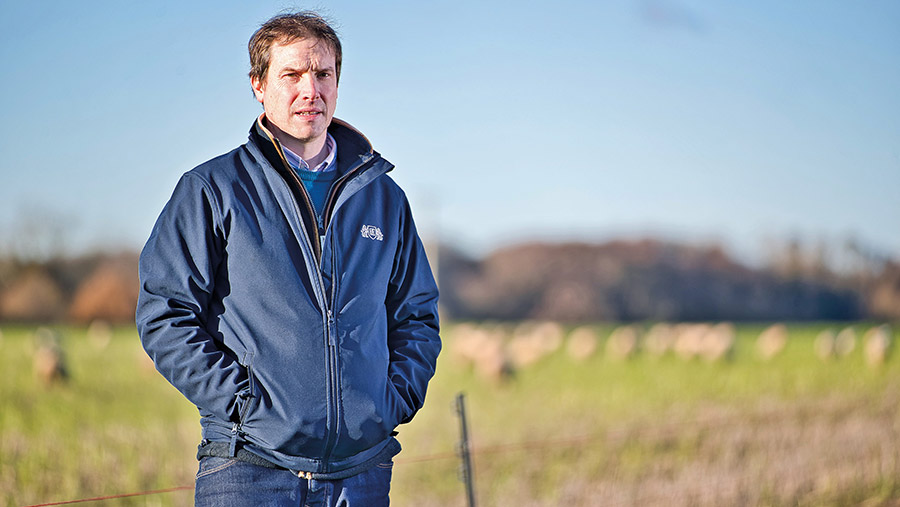Farmer Focus: Frosts make a challenging first lambing season
 © Richard Stanton
© Richard Stanton We have had a challenging first lambing season at Bradford Estates. Our first flock of sheep in living memory started grazing in a joint venture set up with an initial 300 New Zealand Romney ewes.
Working with our partner Alec Hough, whose family farm business is based nearby, we began lambing in the first week in April following the wet weather throughout March.
See also: Crop Watch: Sprayers dodging showers and maize drilling horror
Wet weather meant we could not graze sheep on the cover crops, so we were forced to move them sooner than expected to grass.
The weather continued to be unfavourable, with another month of showers and cold.
We all know April can be wet, but the frosts made it so much harder. The sheep struggled to lamb outdoors when it was cold, so we had to move more ewes and lambs indoors.
The wet weather meant ewes were flighty and required attention, resulting in the lambs not surviving.
Alec has worked hard to keep the mortality rate low and well below where we feared we may be, with the adverse weather conditions.
Colleagues in Scotland have told me that the cold has been tough this spring. They have struggled to lamb in the conditions. We are looking forward to warmer weather.
Going forward, the sheep will have access to a 10-acre field, which has been transformed into an apple orchard. The aim is to create a new eco-habitat under our innovative agroforestry project.
Where there was a previous single crop of barley, we plan an orchard, growing apples for juice, which will be sold in the local area.
Livestock will be grazed on the land, where we hope birds and insects will be attracted by the creation of orchard and pasture habitats.
The project has been funded by Shropshire Council through its Trees Outside Woodlands scheme and from a Network Rail tree planting programme, both of which were supported by national charity, the Tree Council.


